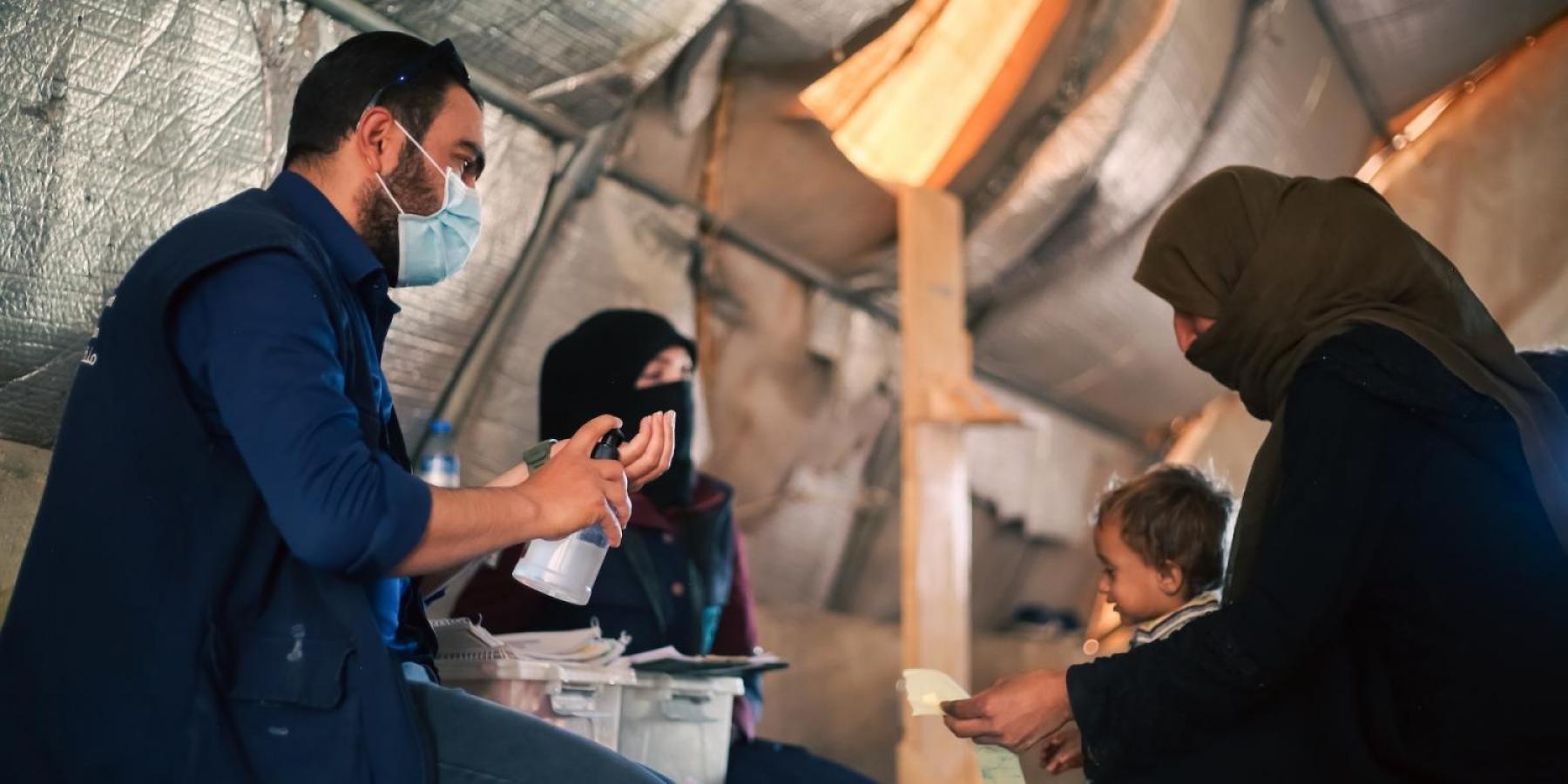Briefing paper recommends response to humanitarian emergencies, showcases 3 countries’ action
23rd January 2024

23rd January 2024
Among them are many millions of people living with NCDs, who are often left to manage their conditions with health systems and services that have been completely destroyed or seriously undermined. A new policy brief demonstrates why ensuring universal health coverage for this vulnerable population must be made a global priority.
Neglected and in crisis: NCDs as a priority in humanitarian settings, by the NCD Alliance with support by The Leona Leona M. and Harry B. Helmsley Charitable Trust, makes an urgent call to action for governments, and provides recommendations to support them in moving this agenda forward. It will also help inform the 2nd WHO global technical meeting on NCDs in emergencies, taking place from 27-29 February 2024.
Neglected and in crisis highlights three successful initiatives being implemented in Kenya, Lebanon and Ukraine; each one is described in further detail as a separate case study.
Kenya, where NCDs now account for 41% of all deaths and around half of all hospital admissions, has been responding to the health needs of refugees from various conflicts for many years. Increasingly the displaced are internal, fleeing natural disasters. A recent project responded by adapting WHO’s NCD Kit. The updated kit – covering diabetes, hypertension, mental health conditions, injuries and asthma – was first implemented in Kenya’s Coast region in 2021. An initial baseline survey and rapid assessments, as well as real-time evaluation during flooding, showed that this has had the intended purpose of ensuring continuity of services for NCD patients during emergencies. In 2024 Kenya’s Ministry of Health is developing a policy document on NCDs in humanitarian emergencies, including floods, drought, pandemics and political unrest, as well as NCDs among populations living in slum areas.
Lebanon is hosting almost 1 million people displaced from neighbouring Syria. The 15% increase in the country’s population has placed enormous pressure on its infrastructure and public services, including the health system, and led to an influx of humanitarian actors to support the response. A consortium of international organizations, Partnering for Change, is researching implementation of two models of care – Peer Support Groups and an Integrated NCD Care Model – that aim to improve access to uninterrupted and high-quality NCD-specific prevention, diagnosis and care. The consortium aims to document and disseminate experiences and learn lessons that could be transferable to other settings.
In Ukraine, where 1.5 million people were already displaced in the occupied Donbas region in 2014, the internally displaced population grew to 3.7 million by the end of September 2023. In a country where roughly 91% of deaths in 2018 were caused by NCDs, the response was swift. With significant amounts of humanitarian aid provided by both NGOs and the private sector, communication channels were strengthened and bureaucratic barriers rapidly removed to assist patients to receive timely assistance. For example, the charitable foundation World Against Cancer was formed in May 2022, facilitating the flow of grants from international organizations and Ukrainian philanthropic bodies to take action on cancer. Grants from the Union for International Cancer Control enabled examinations of women with breast cancer and a programme providing psychosocial support and rehabilitation for cancer patients and their families in south-east Ukraine. A further grant from French pharmaceutical company Sevier ensured the continuation of cervical cancer screening in the region and the establishment of a pilot programme of screening for colorectal cancer.
While each country must respond to the particular needs of people displaced within its borders and the surrounding region, Neglected and in crisis lays out various principles that all governments can apply when dealing with humanitarian emergencies. Topping the list of recommendations that will enable governments to provide Universal Health Coverage to these vulnerable populations are: a) integrate essential NCD services into every part of the emergency cycle – from preparedness and disaster risk reduction, through the immediate emergency response, to building back better during recovery, and b) build models of primary care that are people-centred and affordable for all. This includes ensuring access to health records and services across the continuum of diagnosis, treatment, rehabilitation and palliative care. Such primary care will better empower people living with NCDs in humanitarian emergencies to self-manage their condition.
While much remains to be done, there is growing awareness of the need to ensure NCD care for those living in humanitarian settings and global health is beginning to reflect this. For example, in 2022 the 75th World Health Assembly recommended prioritizing NCDs in emergency preparedness and response planning; the WHO Global NCD Compact directed that by 2030 governments should protect 1.7 billion people living with NCDs by ensuring access to care in humanitarian emergencies.